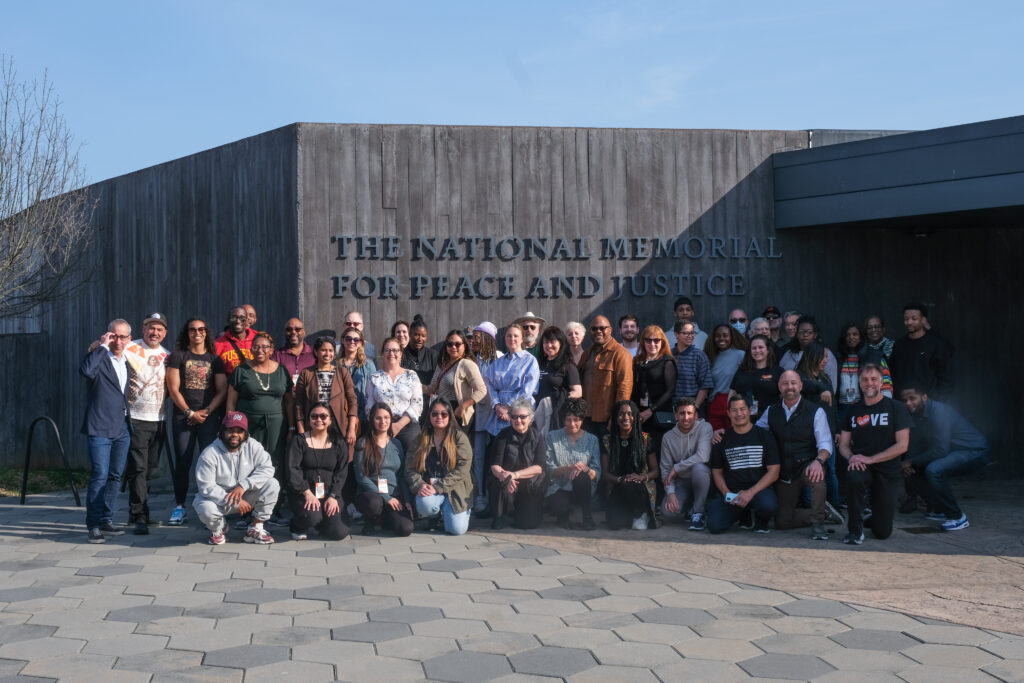
As I embarked on my second Pilgrimage to Alabama with GLIDE, I anticipated revisiting historic sites that held immense significance for African Americans and the entire nation. Our itinerary promised visits to poignant landmarks like the Selma Bridge, the 16th Street Baptist Church, the Legacy Museum, and the Mothers of Gynecology Museum. Little did I know that this journey would not only educate me deeper about the past but also force me to confront my emotional barriers.
During the Pilgrimage, we took a solemn walk across the Selma Bridge, symbolizing resilience and sacrifice in the struggle for civil rights. Standing on that historic ground, I felt the weight of the countless lives that had marched before me, fighting for equality and justice. Their footsteps resonated through the air, an urgent reminder of the battles fought and the progress yet to be made.
The 16th Street Baptist Church, among our itinerary’s additional stops, evoked a sense of bewilderment within me. The tragic bombing that claimed the lives of four young girls in 1963 was a stark reminder of the violence and hatred that permeated the era. It prompted me to ponder why anyone would harbor such hatred towards innocent individuals, leading them to commit such a heinous act. It’s profoundly perplexing to comprehend how someone could justify the brutal and senseless killing of young girls in such a sadistic manner. As I gazed upon the memorial honoring these innocent victims, I felt a sense of sorrow and anger at the senseless loss of life. Yet, amidst the darkness, there was also a glimmer of hope in the community’s resilience and unwavering commitment to justice. It showed me that I owe these girls to learn more about social justice, voting, feminism, and the roots of hatred and to support causes that aim to eradicate such injustices actively.
The Legacy Museum provided a harrowing glimpse into the horrors of slavery, lynching, and racial oppression that have plagued our nation’s history. Walking through the exhibits, I was confronted with the brutal realities of our past, and yet, I was struck by the profound lack of emotional response within myself. As my peers, irrespective of their racial backgrounds, were visibly stirred by the exhibits, I found myself oddly detached from the unveiled atrocities. This moment of introspection compelled me to confront the subconscious inclination to distance myself from the anguish of Black history.
In witnessing the visceral reactions of others, I realized that my automatic response was not one of empathy but detachment. I had become so accustomed to suppressing my emotions and numbing myself to the trauma of my ancestors that I had inadvertently distanced myself from their experiences.
The Pilgrimage was a powerful reminder that the fight for civil rights is far from over and that complacency is not an option. It challenged me to acknowledge my emotional barriers and inspired me to break free from the cycle of numbness and indifference. Reflecting on the journey, I realized that genuine empathy requires understanding the past, being willing to confront it head-on, and actively working toward a more just and equitable future.


A reflection by Kenneth Ward, GLIDE’s Social Media & Digital Content Specialist.